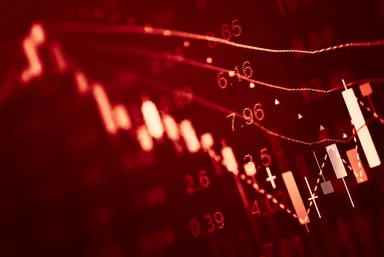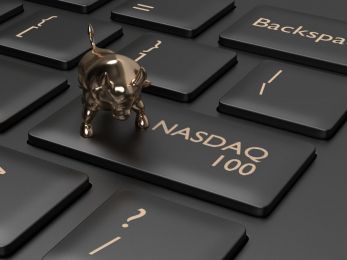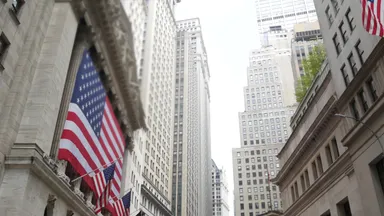Featured articles

DAX 40 continues to push to new highs
The DAX 40 sees six consecutive days of gains as the index pushes to new highs driven by risk-on sentiment
09:54, 12 January 2026

From Caracas to Wall Street: how the U.S.–Venezuela crisis could move markets
The start of the new year has marked a dramatic escalation in the United States’ confrontation with Venezuela.
08:53, 9 January 2026

Intel stock split: what it means for traders
Intel’s long history of stock splits reflects the company’s evolution through several major technology cycles, from early PC growth to data-centric expansion. With its most recent split taking place more than two decades ago, questions often arise about whether Intel may adjust its share structure again.
15:49, 19 December 2025

Telefónica stock forecast: Third-party price targets
Telefónica is a Spanish telecommunications company listed in Madrid, with operations across Europe and Latin America. Explore third-party TEF price targets and technical analysis.
15:10, 29 January 2026

Obrascon Huarte Lain stock forecast: Third-party price targets
Obrascón Huarte Lain is a Madrid-listed construction group operating in civil engineering, concessions and industrial services, with projects across Spain and international markets. Explore third-party OHL price targets and technical analysis.
15:00, 29 January 2026

Grifols stock forecast: Third-party price targets
Grifols is a Spanish healthcare company specialising in plasma-derived medicines, listed in Madrid and the US, with its shares traded by investors following developments in earnings, debt and regulation. Explore third-party GRLS price targets and technical analysis.
14:39, 29 January 2026

Puig Brands stock forecast: Third-party price targets
Puig Brands is a Spanish-listed beauty and fashion group, with activities spanning fragrances, cosmetics and apparel. Explore third-party PUIG price targets and technical analysis.
13:13, 29 January 2026

Markets enter a correction phase as volatility rises and geopolitical risks re-emerge
Markets selloff across the board as investors de-risk and balance their portfolios heading into the weekend
11:58, 30 January 2026

Week Ahead: Markets seek confirmation as policy, earnings and geopolitics converge
Central banks meetings, earnings and geopolitics in focus next week as markets test the soft-landing narrative
10:52, 23 January 2026

US100 forecast: Third-party targets
The US Tech 100 reflects the performance of some of the largest non-financial companies listed on the Nasdaq and is often used as a reference point for movements in the US technology sector.
16:11, 19 January 2026

Trading the S&P 500 Following the Greenland Tariff Threat
Equity index takes a hit in the futures market down less than 1% denting short-term technicals, and in sentiment CoT speculators remain net short.
07:25, 19 January 2026

Markets enter a correction phase as volatility rises and geopolitical risks re-emerge
Markets selloff across the board as investors de-risk and balance their portfolios heading into the weekend
11:58, 30 January 2026

Italgas stock forecast: Third-party price targets
Italgas is an Italian gas distribution company listed on the Borsa Italiana, operating regulated infrastructure networks across Italy and Greece, with its shares followed by analysts covering the European utilities sector. Explore IG price action, third-party price targets and technical analysis.
14:23, 27 January 2026

Gold and Silver forecast: Precious metals surge as confidence in the dollar frays
Gold and Silver surge into the new week as rising market uncertainty drives investors to seek refuge in precious metals.
10:20, 26 January 2026

Trading Gold as it Breaches $5,000
Technical overview remains very much volatile for the precious metal as it seemingly goes parabolic, and traders both large (CoT) and small (retail) remain majority buy.
05:41, 26 January 2026

EUR/USD forecast: Third-party price targets
Movements in the euro–US dollar exchange rate often reflect a shifting balance between economic data, central bank expectations and broader market conditions.
14:00, 14 January 2026

US dollar forecast: Third-party price targets
The US dollar’s performance often sits at the centre of broader market conversations, reflecting how investors are interpreting interest rates, economic data and policy direction at a given moment.
11:42, 14 January 2026

From Caracas to Wall Street: how the U.S.–Venezuela crisis could move markets
The start of the new year has marked a dramatic escalation in the United States’ confrontation with Venezuela.
08:53, 9 January 2026

Year-end volatility appears as strong US growth meets Yen intervention risk
US growth comes in stronger than expected in the third quarter and Japan FX intervention rhetoric. ramps up.
10:13, 24 December 2025

Bitcoin price prediction: Third-party outlook
Bitcoin remains one of the most closely followed digital assets. BTC price movements can provide valuable insights into macroeconomic conditions, market sentiment, and broader developments within the crypto ecosystem.
17:03, 27 January 2026

Pi Network price prediction: Third-party outlook
Pi Network has attracted attention as a developing cryptocurrency project, with its token price influenced by a combination of project-specific developments and broader digital-asset market conditions. Discover the latest, third-party PI crypto forecasts.
15:29, 19 January 2026

Ethereum Price Prediction: Third-party outlook
Ethereum is the second largest cryptocurrency by market capitalisation, second only to Bitcoin, with its price shaped by a mix of market sentiment, network developments and broader financial conditions.
14:59, 19 January 2026

The decision point for bitcoin is here
Past performance isn’t a reliable indicator of future results.
16:40, 16 January 2026
